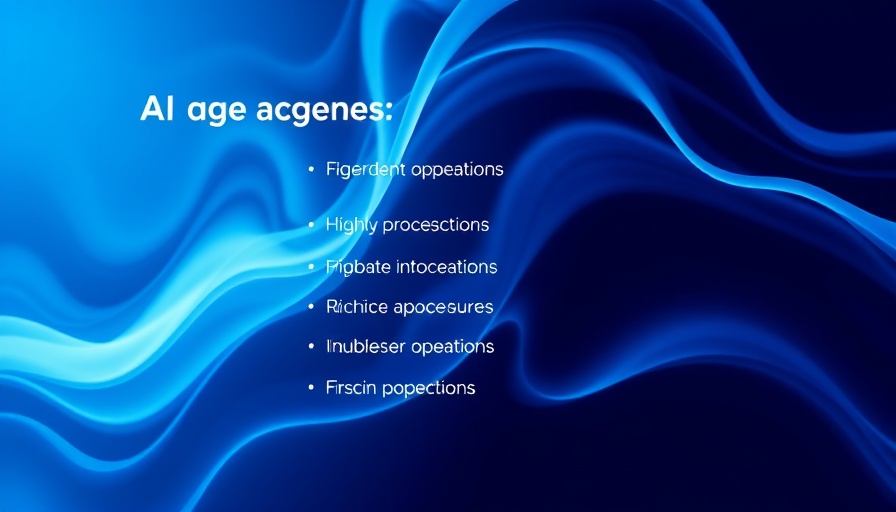
OpenAI Makes a Bold Move in Agent Development
In an exciting development for tech enthusiasts, OpenAI has unveiled new tools that significantly streamline the process of creating AI agents. Known as agentic AI, these advancements allow developers to build applications that don't merely respond to queries but also take actions, like completing transactions or processing requests. This shift marks a critical step towards integrating AI more deeply into various facets of everyday life.
Easing the Development Process
Previously, developing AI agents required navigating a complex web of APIs and extensive iterations for prompt engineering—often posing a barrier for many developers. However, OpenAI's introduction of the Responses API and Agents SDK changes the landscape by providing robust tools that unify these capabilities. The Responses API simplifies interactions between AI models and their applications, allowing for engaging user experiences with reduced friction.
Unlocking New Capabilities
The true power of these new tools lies in their capabilities. The Responses API integrates numerous functionalities—like web searching and file access—allowing agents to execute multi-faceted tasks with ease. It combines features akin to OpenAI’s earlier Chat Completions API, but with enhanced utility for building complex workflows involving real-time data retrieval and processing. Imagine having a personal AI agent that can fetch the latest news, analyze your emails, and even draft responses, all while managing your calendar!
Case Studies from Industry Leaders
Several early adopters have already begun deploying these tools effectively. For example, Box’s leadership reported that their teams could integrate proprietary data with OpenAI’s models within 48 hours, enabling their ML-powered agents to handle various tasks, from automated customer service to financial data analysis. Companies like Coinbase are utilizing the Agents SDK to create solutions that integrate with existing workflows efficiently.
Future Predictions of Agentic AI
Looking forward, we can anticipate a rapid expansion of AI agent capabilities across sectors. Experts like OpenAI's Olivier Godement predict a future where personal agentic AI assistants—empowered by secure access to sensitive information—could take over mundane tasks. For instance, you could engage with a merchant's agent through conversations while your personal agent manages transactions seamlessly.
Challenges Ahead: Managing Information and Complexity
Despite the excitement surrounding these advancements, caution is warranted. As noted by Box’s team, overloading an agent with too much information could hinder its efficiency. Creating specialized agents for particular tasks—much like how we delegate responsibilities among human coworkers—can yield more effective results. This perspective encourages developers to think strategically about how to modularize agent capabilities.
A New Era for Developers and Businesses
In conclusion, the simplified tools from OpenAI are set to revolutionize the developer landscape. By making it easier to create agentic applications, we can expect a surge in innovative solutions that enhance productivity and convenience in daily operations. Businesses willing to invest in these technologies stand to gain a significant competitive edge in the marketplace.
Stay ahead of the curve—start exploring how OpenAI's tools can transform your operations and engage with the growing field of AI agents. With each new development, the potential to automate complex tasks grows, presenting exciting opportunities for developers and businesses alike.
 Add Row
Add Row  Add
Add 




 Add Row
Add Row  Add
Add 

Write A Comment